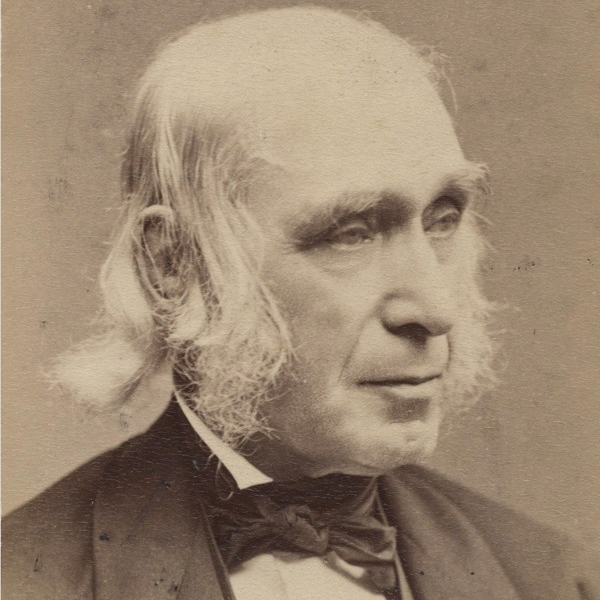American philosopher, teacher and reformer Amos Bronson Alcott (1799-1888) dedicated his life to various intellectual and social movements, including Transcendentalism, abolitionism, and education reform.
The self-educated son of a poor farmer, Alcott spent his early years in rural west-central Connecticut. Although he had little formal education, as a child he developed a love for reading. Alcott worked at varied pursuits including farming, clockmaking, selling religious tracts and peddling before finding a teaching position, eventually establishing a series of schools for children. His unorthodox educational theories were not widely accepted and before the age of forty he was forced to close his last school, located in Boston’s Masonic Temple on Tremont Street.
In 1830 Alcott married social reformer and suffragist Abigail May Sewall. The couple had four daughters: Anna Bronson (1831), Louisa May (1832), Elizabeth Sewall (1835), and Abby May (1840). Alcott believed in the importance of educating his daughters; Louisa May became the well-known author of Little Women.
In June 1843, Alcott helped establish Fruitlands, a Transcendentalist farming collective in Harvard, Massachusetts, with mystic Charles Lane. When that venture failed, he moved his family to Lexington Road in Concord close to his friend and fellow Transcendentalist Ralph Waldo Emerson. According to biographer John Matteson, this home, now known as The Wayside and owned by the National Park Service, served as a stop on the Underground Railroad. It would also provide inspiration for Louisa May Alcott’s literary works.
By 1850 Alcott had relocated with his family to Boston, where he participated in anti-slavery meetings and served as a member of the 1850 Boston Vigilance Committee, which formed in response to enactment of the Fugitive Slave Law. In 1857, he returned to Lexington Road in Concord, purchasing a house on twelve acres of land with an orchard of forty apple trees. “Orchard House” would forever be associated with the Alcott family.
A vegetarian, abolitionist, and advocate of women’s rights, Alcott was an intensely spiritual man who was perceived as lofty and idealistic. He was often in debt, and worked as a handyman or lived on the bounty of others until the literary success of his daughter, Louisa May Alcott, and the popularity of his lyceum lectures brought him some level of financial security.
Photo courtesy of the National Park Service

